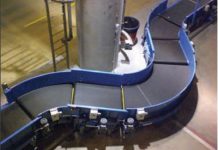
According to research by Tel Aviv, Israel-based UVeye, a leader in automated vehicle inspection technology, visual inspections offered by most garages are done in less than 15 minutes and successfully identify safety related issues less than 40 percent of the time.
Automated vehicle inspection systems, such as those provided by UVeye, are faster and more accurate when searching for safety defects in vehicle and tire inspections — another service done by eye at 60 percent of surveyed garages, says Amir Hever, CEO of UVeye.
“While most service departments have check lists to help guide technicians and customer service personnel through an inspection process, there’s no industrywide standard for identifying serious vehicle safety issues,” Hever says. “The development of automated inspection technology removes inconsistencies and human error from the equation.”
A tire-inspection system, for example, can identify a tire’s brand, technical specifications, pressure, tread depth, sidewall damage, and other potential safety problems in a matter of seconds.
Underbody inspections can take less than 90 seconds using an automated system, taking thousands of images per second, pinpointing missing components, damage, and other safety issues more accurately than the human eye.
According to the U.S. Department of Transportation (DOT), 6.7 million accidents and 36,000 fatalities occurred on U.S. roads and highways in 2019, around 30 percent of which are caused by some form of mechanical failure, over 2 million accidents based on 2019 data.
UVeye has developed numerous automated inspection systems utilizing combinations of proprietary algorithms, cloud architecture, artificial intelligence, machine learning, and sensor fusion technologies. IT began installing systems in new and used-car dealerships and used-car auctions in the U.S. last year.
The systems are built to be used throughout the lifecycle of a vehicle, from supplier and OEM assembly lines to new-car showrooms and dealership garages. Hever says although road safety is the primary benefit of these systems, the systems also save these business money and time.
UVeye has more than 100 employees and already has installed vehicle inspection systems at assembly plants, vehicle auction sites and dealerships around the world. The company has offices in Tel Aviv, Cleveland and New York, as well as locations in Japan and Germany.











